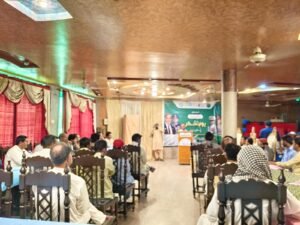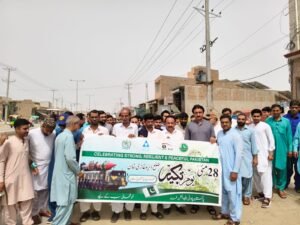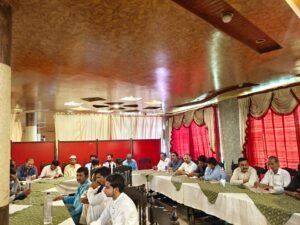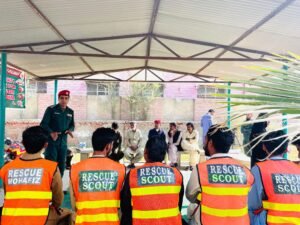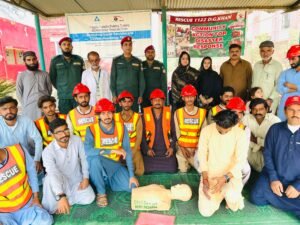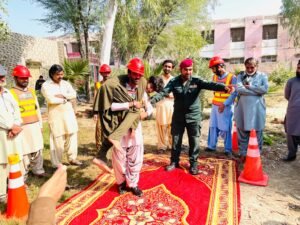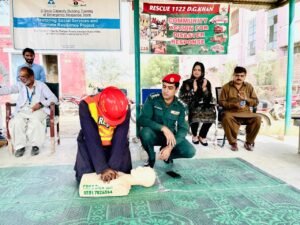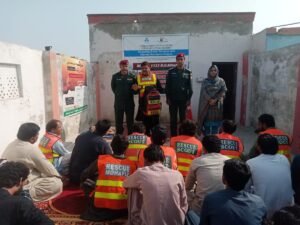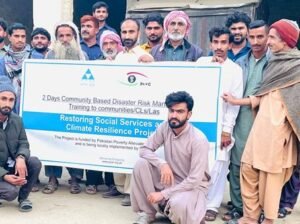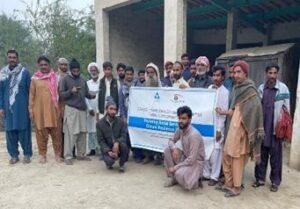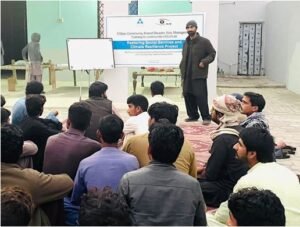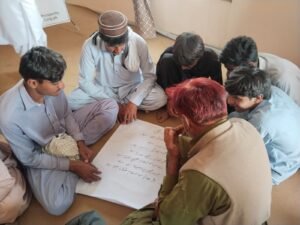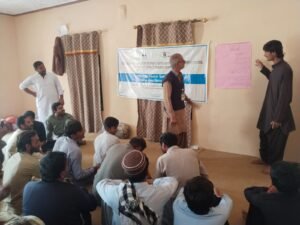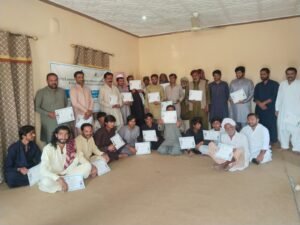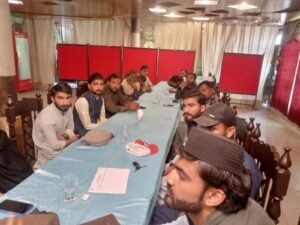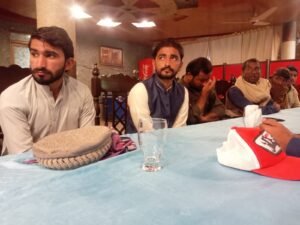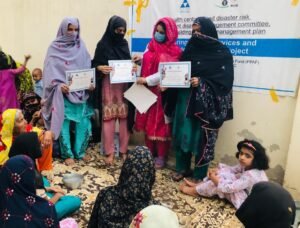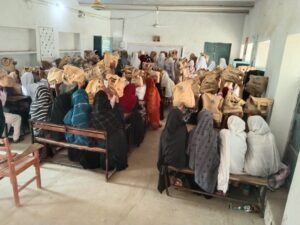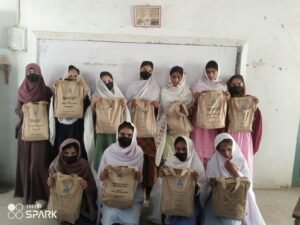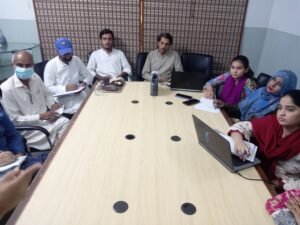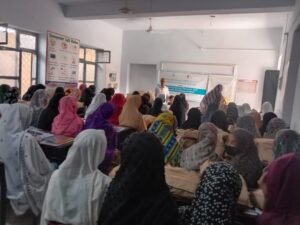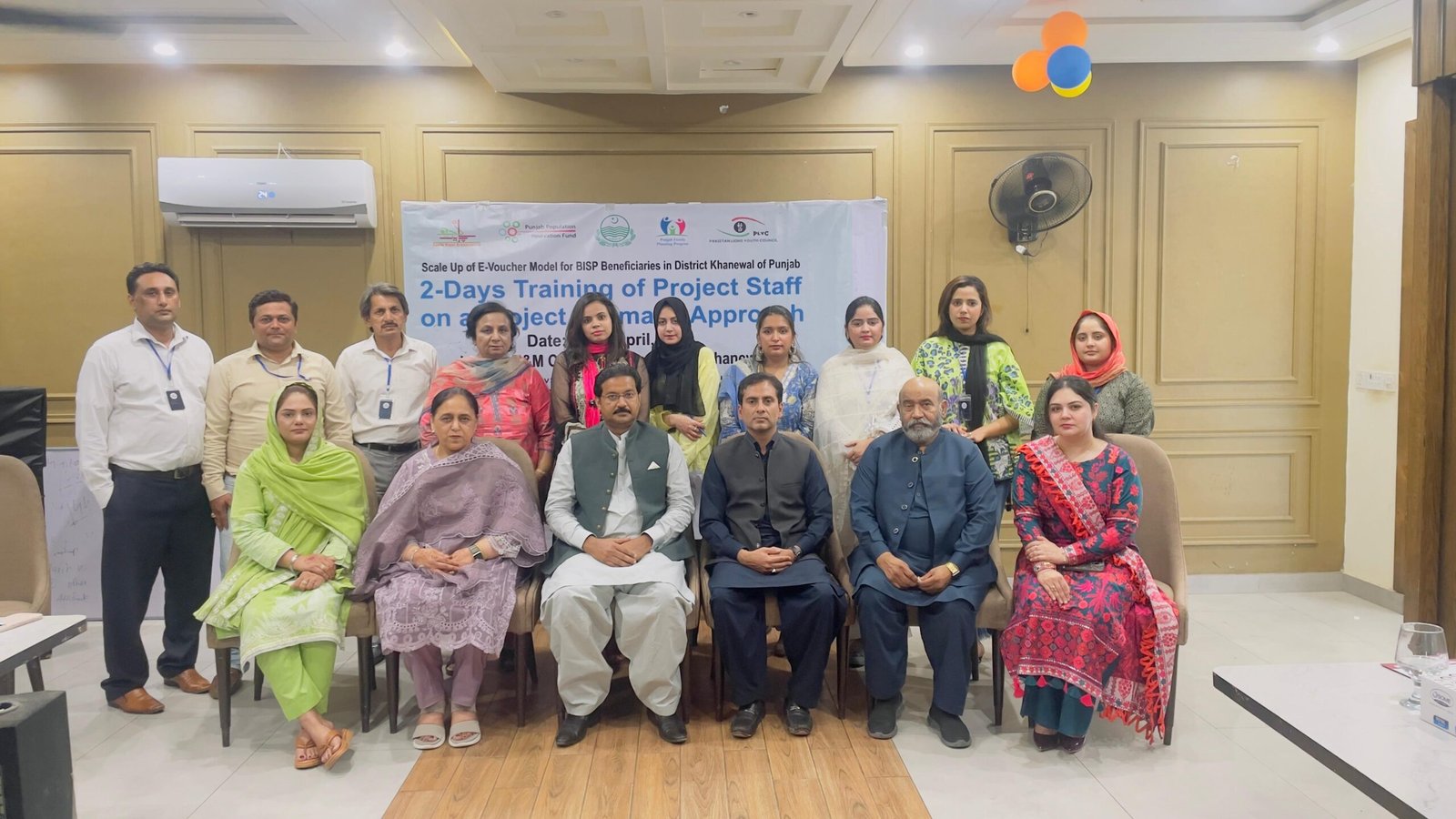
- By: admin
- Comments (0)
- Oct 31
Restoring Social Services and Climate Resilience
OBJECTIVE OF THE PPAF PROJECT:
The “Restoring Social Services and Climate Resilience” project is being implemented by the Pakistan Lions Youth Council (PLYC) with funding from the Pakistan Poverty Alleviation Fund (PPAF) under the Flood Relief & Rehabilitation Initiative. The primary objective of this project is to provide immediate assistance to the communities affected by the devastating floods in the Dera Ghazi Khan region while focusing on long-term rehabilitation, climate resilience, and social services restoration.
The project targets three Union Councils in Dera Ghazi Khan, which were declared “calamity affected” by the government of Pakistan due to the catastrophic floods. These areas have suffered extensive damage, not only to infrastructure but also to the livelihoods of the communities, with widespread impacts on food security, health services, and education. This initiative aims to address these immediate needs by restoring access to essential services and helping the affected population recover in a sustainable manner. In the short term, the project will focus on providing food security, healthcare, and educational services to ensure that the most vulnerable populations can meet their basic needs.
Long-term rehabilitation efforts will concentrate on rebuilding income generation activities, such as supporting livelihoods and enhancing climate resilience, to reduce the future vulnerability of these communities to similar disasters. By strengthening the local capacity to cope with climate-induced challenges, this initiative will foster greater self-reliance and help rebuild the social fabric of the affected communities, setting the stage for a more resilient and prosperous future.
Needs Assessment: A detailed needs assessment was carried out through 12 Focus Group Discussions (FGDs) and 1 Key Informant Interviews (KIIs) to understand both the immediate and long-term needs of the affected communities. The different basic needs were identified like clean drinking water, retrofitting of health and educational facilities, Wash facilities and protection from flood infrastructure.
Community Development and Social Mobilization: The project trained 15 Community Resource Persons (CRPs) in climate resilience and community mobilization, climate resilience and disaster preparedness. Furthermore, 36 Community Organizations (COs) and 15 Village Organizations (VOs) were formed to improve local governance and enhance community participation in recovery efforts. Village Development Plans (VDPs): To promote sustainable, community-driven development, 15 Village Development Plans (VDPs) were developed. Impact – Restoring Resilience and Building Sustainable Futures in Flood-Affected Communities: This ongoing project is being implemented in the three flood-affected union councils of dera Ghazi Khan ( one in Yaroo UC tehsil and District Dera Ghazi Khan and two UC Makwal kalan and Mangrotha Tehsil Tounsa district Dera Ghazi Khan of south Punjab, is making significant progress in restoring essential services and building long-term resilience in communities impacted by the devastating 2023 floods. The overarching goal of the project is to alleviate poverty through climate-resilient, sustainable development, with a focus on both immediate recovery and enhancing the communities’ capacity to cope with future climate-related challenges.
Restoration of Essential Services and Infrastructure: The project is actively restoring and retrofitting key social services, including health, education, and water & sanitation (WASH) facilities etc. This includes essential upgrades such as solarization and the provision of missing infrastructure/facilities to ensure continued access to vital services for flood-affected communities in the target union councils of Dera Ghazi Khan. Furthermore, climate-resilient infrastructure projects—such as flood protection walls, check dams, water filtration systems, and the restoration of water supply schemes and irrigation channels—are being implemented to strengthen the resilience of the communities to future climate-related disasters.
Strengthened Community Resilience and Climate Adaptation:
One of the main focuses of the project is to enhance the resilience of vulnerable communities by implementing climate change interventions. This includes improvement in infrastructure and promoting climate-resilient livelihood practices through restoring water channels as well as sustainable agricultural methods etc. These interventions will significantly increase the capacity of communities to absorb, recover from, and adapt to future climate shocks, while reducing their long-term vulnerability to climate change. Enhanced Knowledge, Capacity, and Disaster Preparedness The 2nd main component of the project is the community capacity-building. PLYC has trained 15 Community Resource Persons (CRPs 5 from each target UCs) on social mobilization for health and education, climate resilience, disaster preparedness as well as reduction in gender based violence, and community mobilization. These CRPs are now empowered to lead local climate adaptation efforts and disaster risk management activities. Additionally, 36 Community Organizations (COs) and 15 Village Organizations (VOs) have been formed for fostering stronger community participation and improving local governance structures.

